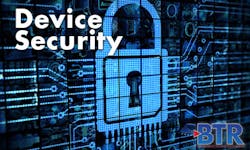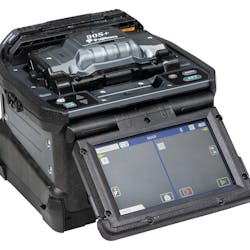The controversy has put the spotlight on the topic of mobile device security, said Jeff Wilson, research director for cybersecurity technology at IHS (NYSE:IHS).
An increasing number and variety of mobile devices are being connected to corporate networks, such as cable operators' increasing use of apps on tablets and smartphones for workforce management, test and measurement, and other daily tasks. This trend both changes the way people work and blurs the line between personal and corporate assets, Wilson said. This makes "nearly every" enterprise in North America a customer for mobile security solutions.
"Buyers are making important budget and technology decisions now, and security vendors wishing to tap into mobile and IoT device security opportunity need to offer on-device, on-network and even cloud-based solutions," Wilson said.
In its "Mobile and IoT Security Strategies and Vendor Leadership North American Enterprise" survey, IHS found that IT departments often aren't aware how many and what devices are on their networks, including newer IoT devices like networked video cameras, GPS equipment and wearables. Some traditional mobile devices and operating systems and "many" IoT devices do not support client protection. Additionally, users find ways to get around security measures, which they believe affect performance. Devices are lost, stolen or otherwise compromised, so security solutions need to expand beyond threat prevention. And IT departments don't have comprehensive security for mobile devices and are feeling overwhelmed by the thought of dealing with IoT solutions now, too.
The Apple case brings up questions of security vs. privacy. The government seeks this access in order to find out who Farook was communicating with and what websites he accessed. Apple has provided the FBI with the information store in iCloud, but Farook apparently stopped backing up the device about a month and a half before the attack. The data is protected by a passcode and the security on the phone will erase everything if more than 10 failed attempts are made at entering it. The company Farook worked for, which owned the cell phone, did not install mobile device management software on it, which would have enabled the phone to be unlocked, according to CNET.
The FBI technically is asking for a special version of iOS tailored for the phone in question that would turn off the auto-wipe function as well as a delay that governs how quickly passcodes can be entered. The government wants to be able to automatically and continuously try passcodes until it finds the right one. Apple says that if it complies a precedent could be set, allowing the government to ask it to defeat other security measures in the future.
Privacy groups and tech companies like Amazon (NASDAQ:AMZN), Facebook (NASDAQ:FB), Google (NASDAQ:GOOG), Microsoft (NASDAQ:MSFT) and AT&T (NYSE:T) have filed briefs in support of Apple's position.





